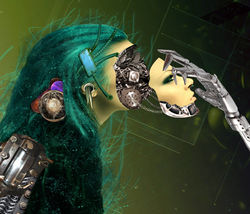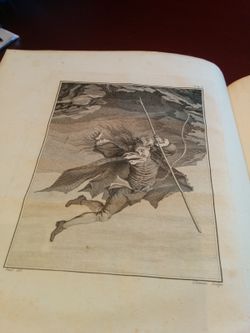Difference between revisions of "Futurescapes"
| Line 10: | Line 10: | ||
Futurescapes shares the Biennale’ interest in interplanetary, space, and time, and the cosmic beyond, and in humans who dream, invent, construct and destroy their way into the future but it frame these issues as humanities, new media, and technology questions. | Futurescapes shares the Biennale’ interest in interplanetary, space, and time, and the cosmic beyond, and in humans who dream, invent, construct and destroy their way into the future but it frame these issues as humanities, new media, and technology questions. | ||
As we enter our future, scientists in the Digital Humanities start to break down the boundaries that have separated communication technologies and the classical humanities. Knowledge about ourselves, our history and our future, our culture and our languages, finds in the Digital Humanities new forms of expression. Digital communication brings us in constant connection to others and exposes us to a encompassing stream of sounds, pictures and words which fill us with new ideas and visions. We therefore envision Futurescapes as a space for scholars across diverse fields to showcase their interdisciplinary work . The Symposium aims to not only offer an opportunity for interdisciplinary practitioners to share their projects, but also to interrogate critically how and with what tools humanists and technologists make things and think big ideas. We also would like to think about the ethical, legal, and political implications of such work, how does it bear on the futures of our fields and beyond. | As we enter our future, scientists in the Digital Humanities start to break down the boundaries that have separated communication technologies and the classical humanities. Knowledge about ourselves, our history and our future, our culture and our languages, finds in the Digital Humanities new forms of expression. Digital communication brings us in constant connection to others and exposes us to a encompassing stream of sounds, pictures and words which fill us with new ideas and visions. We therefore envision Futurescapes as a space for scholars across diverse fields to showcase their interdisciplinary work . The Symposium aims to not only offer an opportunity for interdisciplinary practitioners to share their projects, but also to interrogate critically how and with what tools humanists and technologists make things and think big ideas. We also would like to think about the ethical, legal, and political implications of such work, how does it bear on the futures of our fields and beyond. | ||
| + | |||
| + | |||
| + | |||
| + | [[File:Hania1.jpg|250px]] | ||
Revision as of 11:29, 6 August 2015
A Symposium in New Media, Technologies and the Humanities
The Faculty of the Humanities at the Norwegian University of Science and Technology (NTNU) is pleased to announce a two-day symposium on New Media,Technology, and the Humanities, organized in connection with the TrondheimTechnology Biennale, devoted to the technology of the outer space and interstellar travel.
Futurescapes shares the Biennale’ interest in interplanetary, space, and time, and the cosmic beyond, and in humans who dream, invent, construct and destroy their way into the future but it frame these issues as humanities, new media, and technology questions. As we enter our future, scientists in the Digital Humanities start to break down the boundaries that have separated communication technologies and the classical humanities. Knowledge about ourselves, our history and our future, our culture and our languages, finds in the Digital Humanities new forms of expression. Digital communication brings us in constant connection to others and exposes us to a encompassing stream of sounds, pictures and words which fill us with new ideas and visions. We therefore envision Futurescapes as a space for scholars across diverse fields to showcase their interdisciplinary work . The Symposium aims to not only offer an opportunity for interdisciplinary practitioners to share their projects, but also to interrogate critically how and with what tools humanists and technologists make things and think big ideas. We also would like to think about the ethical, legal, and political implications of such work, how does it bear on the futures of our fields and beyond.


